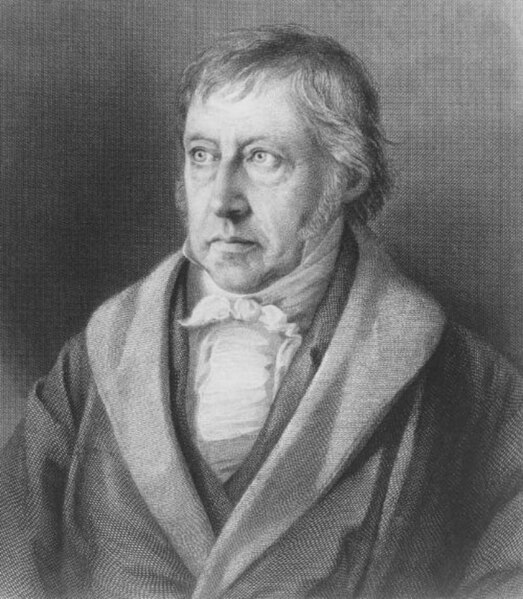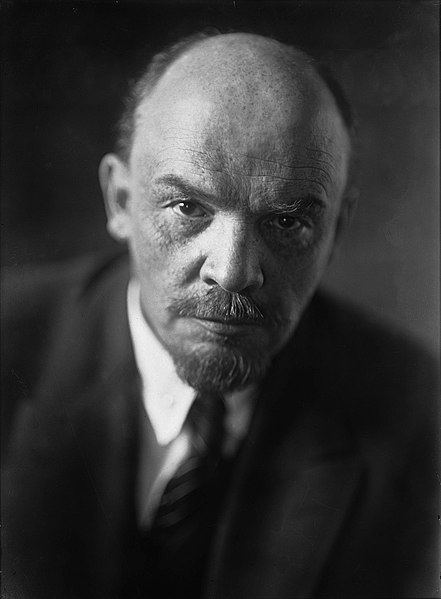Dictatorship of the proletariat
In Marxist philosophy, the dictatorship of the proletariat is a condition in which the proletariat, or working class, holds control over state power. The dictatorship of the proletariat is the transitional phase from a capitalist and a communist economy, whereby the post-revolutionary state seizes the means of production, mandates the implementation of direct elections on behalf of and within the confines of the ruling proletarian state party, and institutes elected delegates into representative workers' councils that nationalise ownership of the means of production from private to collective ownership. During this phase, the administrative organizational structure of the party is to be largely determined by the need for it to govern firmly and wield state power to prevent counterrevolution, and to facilitate the transition to a lasting communist society.
Lenin in 1920
Marxist philosophy or Marxist theory are works in philosophy that are strongly influenced by Karl Marx's materialist approach to theory, or works written by Marxists. Marxist philosophy may be broadly divided into Western Marxism, which drew from various sources, and the official philosophy in the Soviet Union, which enforced a rigid reading of what Marx called dialectical materialism, in particular during the 1930s. Marxist philosophy is not a strictly defined sub-field of philosophy, because the diverse influence of Marxist theory has extended into fields as varied as aesthetics, ethics, ontology, epistemology, social philosophy, political philosophy, the philosophy of science, and the philosophy of history. The key characteristics of Marxism in philosophy are its materialism and its commitment to political practice as the end goal of all thought.
The theory is also about the struggles of the proletariat and their reprimand of the bourgeoisie.

Georg Wilhelm Friedrich Hegel was an important figure in the development of Marxism.


